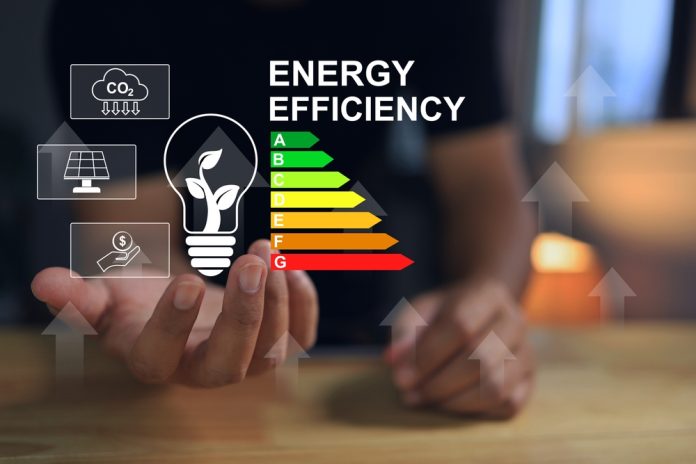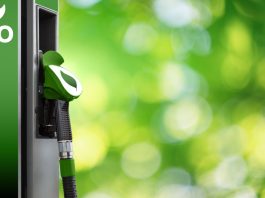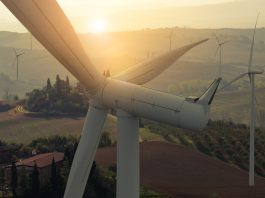Nathalie Hemeleers, Director of EU Affairs at the Solar Impulse Foundation, one of EUSEW‘s partner organisations, highlights the critical role of energy efficiency, emphasising its importance in driving decarbonisation, competitiveness, resource optimisation, innovative solutions, and supportive financing and policies.
Decarbonising our energy supply through renewable sources of energy is absolutely key. However, if the current wasteful practices continue, renewable energy consumption will just add to the current consumption of fossil fuels instead of replacing it. Investing in a more efficient energy system is key to decarbonisation, competitiveness, and security.
A world stuck in the past
The world we live in is stuck in the past. The technologies allowing us to exploit resources have remained largely unchanged since the Industrial Revolution. Our economy is characterised by waste and inefficiency.
Consider that internal combustion engines lose more than two-thirds of the energy we create, and more than a quarter of our drinking water is lost every year due to preventable and treatable leaks in the distribution network.
Or consider that a third of the food we produce is thrown away – wasting not just the final product but all the energy and resources needed to produce it and get it to where it is meant to be. We can do so much better.
The value of energy efficiency
Energy efficiency is not a new concept, especially for EU lawmakers. It does not only allow us to save resources, but also (and maybe more importantly for many) money. It has been estimated that around $4.5 trillion could be saved annually thanks to energy efficiency.
Also, energy efficiency in buildings alone can almost halve seasonal peak demand (up to 49.5% reduction) every year by 2050, avoiding stranded assets and unnecessary investments in grids. €44.2 billion could be saved every year, making the much-needed investments in EU’s distribution grid more cost-effective!
Why is it so difficult to implement?
Energy efficiency is still seen by many as a restriction of business opportunities. We need to change that narrative.
In a time when competitiveness is at the top of policymakers’ attention, energy efficiency should be seen as a close ally. By investing in efficient production systems, costs are reduced, giving businesses a double competitive advantage in producing at a lower cost and in a cleaner way.
Solutions are within reach
And the good news is that innovative, energy-efficient solutions exist! The Solar Impulse Foundation has identified and labelled more than 1,500 existing solutions that can make this paradigm shift a reality in virtually any sector of society.
They are available today, open source, on www.solarimpulse.com. These are just a few among the many already existing, showing that the shift we are calling for is realistic and within reach.
Financing efficient solutions
Now, mobilising public and private capital to invest in clean and efficient solutions and modernise our economies will be key.
New business models have to emerge, those that reward energy efficiency. EU institutions and financial stakeholders have to propose new financing tools that will tackle the double challenge of high CAPEX and higher risk for businesses, especially SMEs.
A modernised economy based on energy efficiency is a qualitative economy that has as a key driver the continuous optimisation of resources.
Energy efficiency as the cornerstone of progress
The fundamental goal is to achieve heightened efficiency in various sectors, prioritising sustainable practices and minimising waste.
Basically, accomplishing more (and better) with fewer resources, thereby contributing to a reduced environmental footprint.
Decarbonisation is no longer the end goal but becomes a consequence of a modernisation process, one that creates jobs and economic activity.
This opinion editorial is produced in co-operation with the European Sustainable Energy Week 2025. See ec.europa.eu/eusew for open calls.
Recommended links
- Solar Impulse Foundation solutions
- Efficiency as a service
- Solar Impulse Foundation’s initiatives and partnerships at COP29
About the author
Nathalie Hemeleers is Director of EU Affairs at the Solar Impulse Foundation, one of EUSEW partners. Her objective is to push for the modernisation of our legislative framework in order to create incentives for the acceleration of the adoption of clean solutions. Following Bertrand Piccard’s tour of the world with his solar plane, the Solar Impulse Foundation has been busy with gathering and labelling more than 1,500 solutions that are clean and affordable. The Foundation is now working on creating an enabling framework for the adoption of these solutions.
Disclaimer: This article is a contribution from a partner. All rights reserved.
Neither the European Commission nor any person acting on behalf of the Commission is responsible for the use that might be made of the information in the article. The opinions expressed are those of the author(s) only and should not be considered as representative of the European Commission’s official position.









